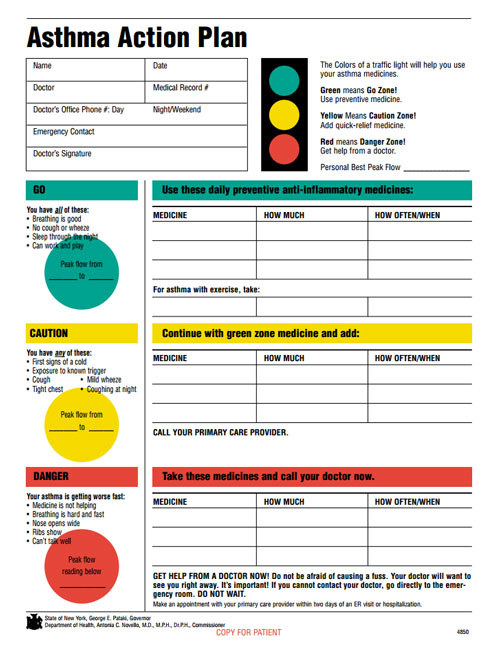Asthma is a condition where your airway becomes restricted due to inflammation in your lungs, making it harder to breathe. If you don’t have asthma yourself, you probably know someone who does. According to The Centers for Disease Control and Prevention, 1 in 11 children has asthma, and 1 in 12 adults has asthma. [1] Some may discover that their asthma is a minor problem, while others are much more affected.
People with asthma experience symptoms such as wheezing, chest tightness, or shortness of breath. Coughing, especially during morning or night hours, is another common asthma symptom. However, not everyone with asthma experiences these exact symptoms, or experiences them in the same way. Our doctors here at Horizon Family Medical Group can identify asthma based on tests that measure your lung functions. Your doctor will also consider your family history and perform a medical examination.
I HAVE ASTHMA, NOW WHAT?
Asthma doesn’t have a cure, but may change over time. Your doctor here at Horizon Family Medical Group can work with you to track your asthma signs and symptoms and develop a treatment plan.
WHAT ARE MY TREATMENT OPTIONS?
Controlling your asthma is the key. It’s better to stop an attack long before it starts. Our doctors can talk to you about long-term asthma medications you take on a daily basis. Options may include a regular inhaled corticosteroid, leukotriene modifiers, long-acting beta agonists, combination inhalers, or theophylline. Each of these classes of medication may be used to help keep inflammation down and airways open. Because everyone is unique, we’ll help you come up with your personalized protocol and medication options, as needed.
If you experience an asthma attack—where you have an acute episode of inflammation that significantly reduces airflow—your doctor may prescribe you a “quick-relief inhaler, such as albuterol.” [2]
You may find that some lifestyle changes are required. And there may be some home remedies that work in your particular situation. Again, chat with your doctor to identify asthma triggers and options for treating your disease.
CREATE AN ASTHMA ACTION PLAN
The Centers for Disease Control and Prevention suggests everyone with asthma has an asthma action plan—a plan to proactively plan for and control asthma symptoms. [3]
The New York State Department of Health has a great form you can use to put together your asthma action plan. Click the image below to open the PDF. [4]
Most people with asthma live a normal, active lifestyle with treatment and symptom management. If you think you may be experiencing any kinds of asthma symptoms, schedule an appointment by calling 1-800-859-0085.
RESOURCES
- http://www.cdc.gov/asthma/impacts_nation/asthmafactsheet.pdf
- http://www.mayoclinic.org/diseases-conditions/asthma/basics/treatment/con-20026992
- http://www.cdc.gov/asthma/tools_for_control.htm
- https://www.health.ny.gov/publications/4850.pdf


